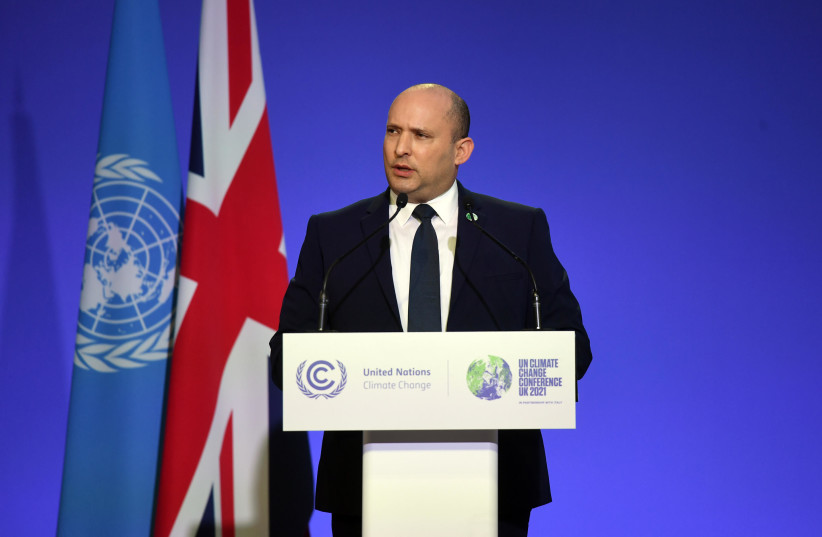We’ve all seen the mountains of trash on TV news, with 2 billion tons of waste produced across the world – every year. Only 4% is currently recycled and 80% ends up in open landfills, with much of this waste making its way into our rivers, lakes and oceans.
Landfills generate 8% of carbon emissions, impacting the climate as well as contaminating nature, damaging marine life, and ultimately, affecting our health. And as populations grow and economies strengthen, the problem only increases.
And now for more bad news: Israel is the second-biggest per capita consumer of waste-generating single-use plastic – in the world. As Environmental Protection Minister Tamar Zandberg said: “Israel is addicted to disposable plastic… and it is time to break the habit.”
However, there is good news (on the environmental, not necessarily financial front.)
To try to counter this addiction, in 2017 Israel began enforcing a tax on plastic bags, which led to an 80% decrease in their use. And a new tax on disposable plastic plates, bowls, cups, and straws aims to double their prices. While this hasn’t been received well across the board because of the additional costs involved, the plan aims to cut purchases of single-use plastic tableware by up to 40%.

To play its part further, Prime Minister Naftali Bennett said at the recent COP26 climate summit that the start-up nation must become “the climate innovation nation.” And there are already some impressive Israeli technologies out there making a difference.
ONE PERSON’S trash is another’s treasure: UBQ Materials is certainly harnessing this sentiment, unlocking the value of waste. Headquartered in Tel Aviv, the company sustainably turns household waste into what they say is the “greenest thermoplastic material on the planet.”
This can be used to manufacture thousands of products, and the material is also recyclable, so it can be used again and again. The company says that for every ton of UBQ material produced, 1.3 tons of waste are diverted from landfill, and equivalent to 11.7 tons of carbon dioxide are prevented from polluting the atmosphere.
Food or animal waste in landfills are also a major source of climate change. The resulting greenhouse gas, methane, has been proven to be even more potent than carbon dioxide, accounting for roughly 30% of global warming.
To prevent this, Even Yehuda-based BlueSphere generates biofuels from food and farm waste. Local utility providers then use these biofuels to power steam turbines for electricity production, ultimately turning waste into energy.
Based in Beit Yannai, HomeBiogas harnesses technology to help families turn their leftover food scraps into garden fertilizer and natural gas for cooking – and their bio-toilet system even turns human waste (hygienically) into cooking gas.
Another considerable contributor to waste is the fashion industry, which accounts for up to 35% of microplastics in the ocean. In an attempt to slow down fast fashion, numerous Israeli fashion brands are working to design beautiful clothes, but in a more sustainable way.
IMYIM, for example, is an eco-fashion brand that creates clothes and accessories by upcycling denim, cotton and linen, and creating eco-patterns designed to minimize fabric waste.
Israeli innovations are beginning to gain traction abroad. UBQ’s materials, for instance, are used to make recycling bins in Virginia, and replace plastic at some McDonald’s branches in Uruguay. And HomeBiogas is working with the UN to convert organic waste into fertilizer and cooking gas in refugee camps in several African countries.
Closer to home, Israel just saw its largest ever “Biggest Beach Cleanup Day” in December, organized by a coalition of 32 environmental groups. Thousands of adults, kids and families joined to clear up the coastline at 80 stations across the country.
At the Midron Yaffo station alone, volunteers collected a staggering 830 kg. of marine debris in just two-and-a-half hours – that’s equivalent to the weight of roughly 7 baby elephants.
The fact that so much rubbish was left on the beach in the first place is another matter. Perhaps our New Year’s resolutions for 2022 should include kicking our plastic habit?
The writer is Middle East Correspondent for India’s WION (World Is One). The author of Tikkun Olam: Israel vs COVID-19, she has helped numerous multinationals report on their contributions to tackling the UN’s Sustainable Development Goals. The views expressed are those of the author.
